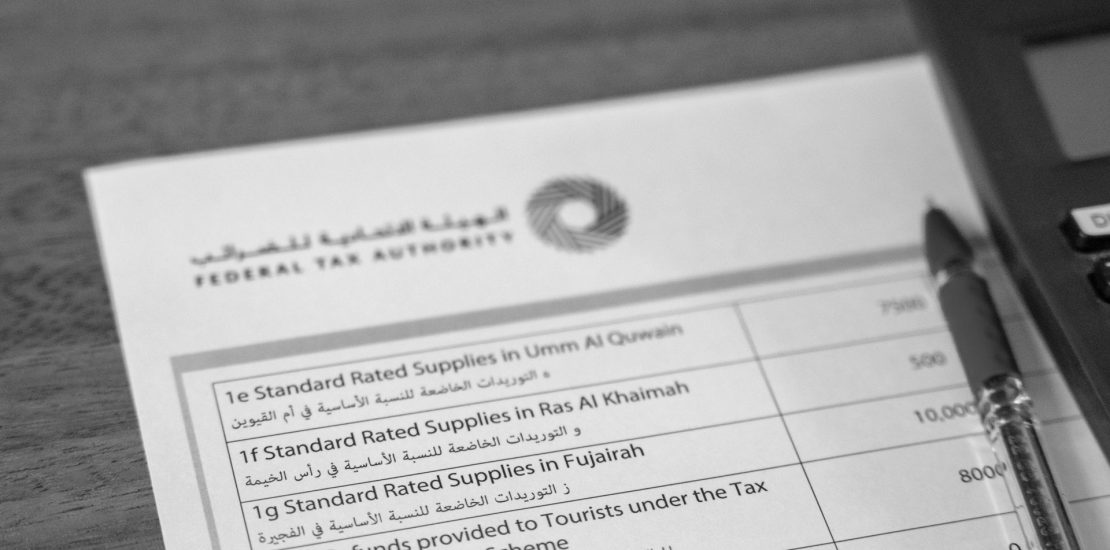UAE Receives OECD Recognition for Corporate Income Tax Framework
- 30.08.2025
- Posted by: Uwe Hohmann
- Categories: Tax, Dubai

The OECD (Organisation for Economic Co-operation and Development) has granted the UAE “transitional qualified status” for its DMTT (Domestic Minimum Top-up Tax) on large multinational companies. This recognition provides important clarity for businesses operating across multiple jurisdictions, thereby reducing compliance complexity.
UAE's Top-Up Tax Structure
The UAE implemented a DMTT from 01.01.2025, applying a 15 percent rate to multinational enterprises with consolidated global revenue of EUR 750 million or more in at least two of the four financial years preceding the applicable tax year.
Benefits of OECD Recognition
The transitional qualified status provides multinational companies with certainty that other OECD countries will recognise UAE tax payments and will not impose additional foreign taxes on UAE profits from covered entities.
This recognition significantly reduces the risk of multilateral audit challenges and costly tax disputes across jurisdictions. Companies can rely on their UAE tax obligations being accepted internationally, streamlining compliance processes and reducing administrative burden.
International Tax Framework Context
The UAE’s recognition forms part of the OECD’s two-pillar reform program, which establishes a global minimum CIT (Corporate Income Tax) rate of 15 percent for large multinational enterprises. This addresses tax challenges from digitalisation and globalisation while setting a floor for international tax competition.
The OECD estimates that this global framework could generate approximately USD 220 billion annually. The UAE’s participation shows alignment with international tax cooperation standards.
Safe Harbour Status Advantages
The UAE’s DMTT also qualifies for OECD Pillar 2 safe harbour status, eliminating the need for complex top-up tax calculations in other jurisdictions. This reduces administrative requirements for both multinational enterprises and tax authorities.
Safe harbour status protects multinational organisations from additional top-up taxes that might otherwise apply due to tax planning structures. This ensures competitive parity with businesses operating in other recognised jurisdictions.
Compliance Considerations
The evolving international tax landscape requires ongoing attention to ensure compliance across all operating jurisdictions. The UAE’s achievement of OECD recognition reflects its commitment to meeting international standards while preserving business-friendly policies.
Businesses should monitor developments in international tax coordination and ensure their structures align with both UAE requirements and obligations in other jurisdictions.
Professional guidance becomes increasingly valuable as these frameworks continue to develop.
TME Services - Your Complete Business Partner
Our comprehensive services are designed to support you every step of your business journey:
- Company Formation: We guide you through all aspects of setting up your company, whether in a free zone or on the mainland, ensuring you choose the best option for your business.
- Visa and Emirates ID Services: We streamline the process of securing visas and Emirates IDs for you and your employees, allowing you to focus on your business operations.
- Accounting: Our team ensures your business stays compliant with local financial regulations, which is crucial for maintaining good standing in Dubai’s business community.
- Tax: We help manage Dubai’s tax environment, ensuring your business remains compliant while optimizing your tax position.
- Business Consulting: Leveraging our deep understanding of Dubai’s market, we provide valuable insights and help you develop effective strategies to succeed.
Visit our services page to learn more about everything we do.
-
21 Feb 2026 DubaiUAE Non-Oil GDP Grows 6.1%
-
21 Feb 2026 TaxUAE Tax Invoicing Mandatory Requirements
-
21 Feb 2026 DubaiMoHRE Completes Consultation on the Alternative End-of-Service Savings Scheme
-
13 Feb 2026 TaxUAE Ministry of Finance Designates VARA as Competent Authority Under CIT Framework
-
13 Feb 2026 TaxUAE Cabinet Decision Exempts Certain Sports Entities from Corporate Income Tax